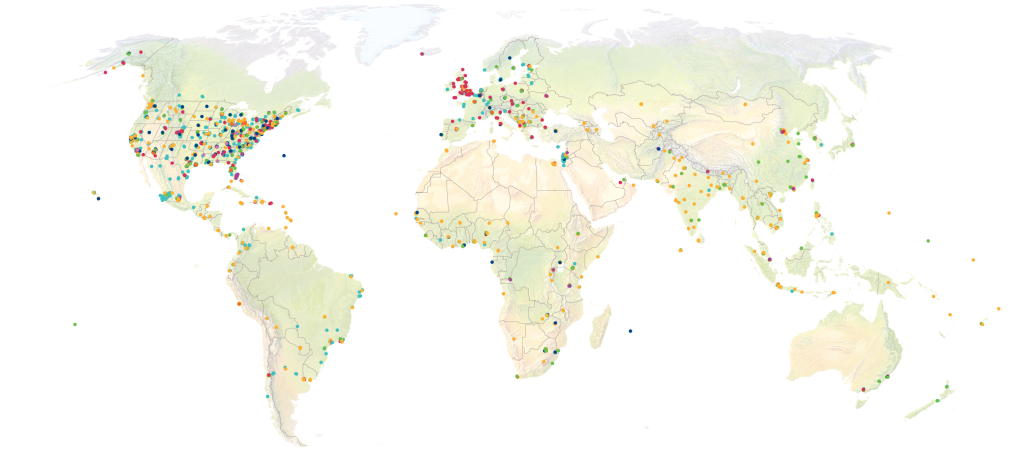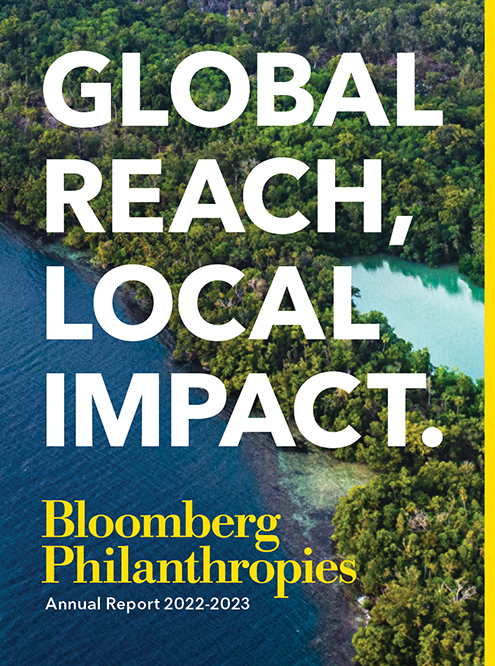
Patricia E. Harris
“We look for unmet needs where others haven’t stepped in, and where we can make a difference.”
I recently had a meeting that took me back to the beginning of one of our longest-running and most successful initiatives, and it left me feeling incredibly inspired about the future.
Back in 2011, U.S. coal production was hovering around its all-time peak. Opposition to coal was a third rail across the political spectrum, but the science was growing increasingly clear: Burning coal was the greatest obstacle to progress in the climate fight, both in the United States and globally, and it was a deadly threat to public health.
Here in the United States, a cap-and-trade bill had recently failed to pass Congress, leaving the prospects of any action on climate in doubt. So, when we learned that the Sierra Club was making progress on an effort called Beyond Coal, which aimed to stop the construction of new U.S. coal-fired plants, we knew we had to act. Together with the Sierra Club, we built a groundbreaking national campaign that involved the first comprehensive effort to map and gather data on every coal plant across the country, along with critical information on their economic performance and pollution levels, allowing us to develop a powerful plant-by-plant strategy. And we set a concrete goal: closing one-third of the country’s existing coal plants by 2020.
In the years that followed, we won fight after fight, quickly beating our original goal. We also ran into new challenges: The construction of new gas-fired power plants began to undercut our progress, and the development of clean energy lagged far behind. In response, we expanded our ambitions by launching the Beyond Carbon campaign in 2019 to build on our coal efforts, block planned gas plants, and support clean energy policies at the state level. We also funded workforce development programs in regions long dependent on fossil fuels.
In April 2023, we convened our partners in this work at Bloomberg Philanthropies for the first time since before the pandemic. It was a chance for Mike and me to sit down with the leaders we’ve collaborated with from the very start, and review just how far we’ve come.
We’ve now helped retire more than 70% of all U.S. coal plants, and we’re aiming to close the remaining 30% by the end of the decade. That success led us to expand our work globally, first to Europe in 2017 and now across 32 additional countries, including 25 developing countries in Africa, Asia, and Latin America. Meanwhile, Beyond Carbon has helped block nearly one-third of all planned U.S. gas capacity and ensured that 20 states and territories now have 100% clean energy laws in place.
Global Reach
In 2022, Bloomberg Philanthropies invested in 700 cities and 150 countries around the world.

At our meeting, we also discussed new challenges and opportunities — and how to finish the job we started. It was an affirmation of how much is possible with the right team and the right strategy. And it made me think about how, in many ways, this program has epitomized the approach we bring to all of our work. Across each of our program areas:
We look for unmet needs where others haven’t stepped in, and where we can make a difference. For instance, in Bangladesh, where drowning is the leading cause of death for children under five, we launched a drowning prevention program that the government has now taken over and committed to scaling to 200,000 kids every year. To share another example, we expanded our work to help more arts organizations in the United States and United Kingdom use digital technology to build their audiences, grow revenue and fundraising, and deliver programming. And globally, we quickly grew the reach of our free Bloomberg Connects app, bringing dozens of new cultural partners onto the app to share their content with audiences.
We lead from the front, no matter how strong the opposition, and we don’t hesitate to tackle controversial issues. In the United States, through Everytown for Gun Safety, for example, we helped pass the first federal gun safety legislation in a generation, following a series of devastating acts of gun violence. When the U.S. Supreme Court stripped federal protections for abortion rights, we stepped up our work with key partners to defend and expand protections at the state level. And our national charter school initiative is in the midst of creating 150,000 new classroom seats.
We identify and engage with strong partners who can work closely with our team to drive progress. This year we made another major investment in our longstanding tobacco control program, which works with the World Health Organization and a wide array of other partners in more than 110 countries, including Mexico, where our partners helped pass a landmark smoke-free law after nearly a decade of advocacy.
We invest in data-driven tools that allow us to target our resources effectively and hold ourselves accountable for results. In September, we launched an online database that shares key data on U.S. racial wealth disparities to help decision-makers drive policies and programs to respond.
We remain flexible to invest boldly and maximize our impact, branching out in new directions as conditions change. After the United States passed major legislation with historic funding for cities, we created an effort with our partners to help mayors and their teams navigate the programs and submit strong applications. As part of our efforts to protect the ocean, we quickly committed support during the Our Ocean Conference in Panama to help developing nations adopt a new global treaty to protect 30% of international waters by 2030. And in New York City, in the span of a few months, we created a summer learning program for K-8 charter school students, after data revealed the crisis in learning loss brought on by the pandemic. The program’s success led us to expand it to seven new cities this summer.
We use advocacy and lobbying to back critical state policies and laws. Our advocacy efforts secured a major victory in the U.S. fight against growing teen e-cigarette use, after we defended California’s ban on flavored tobacco products from a ballot referendum backed by the tobacco industry. Nationwide, we’ve now helped pass nearly 80 state and local flavor bans.
And we focus on cities, as Mike discusses in his letter — and as you’ll read about throughout this report. For instance, our pro bono Bloomberg Associates team added two new client cities over the past year, Tampa and Phoenix, and led a wide range of projects to improve residents’ lives. And we joined with partners in Israel and South Africa to expand the reach of our leadership training work for mayors and their senior staff, building on our successful Bloomberg Harvard City Leadership Initiative.
The approach we bring to these efforts, and many more, goes back to the beginning, even earlier than the beginning of our coal work in 2011. It comes out of Mike’s experiences in business, government, and philanthropy, and it helps us make an impact that spans the globe. Our work is also driven by our longest and strongest partnership of all: with Bloomberg L.P. The vast majority of the company’s profits go to Bloomberg Philanthropies, which fuels all the work we’ve done to ensure better, longer lives for the greatest number of people — and all the work ahead.
Sincerely,

Patricia E. Harris
Chief Executive Officer
Bloomberg Philanthropies
Connect with Patti Harris on Twitter, Facebook, and LinkedIn.
